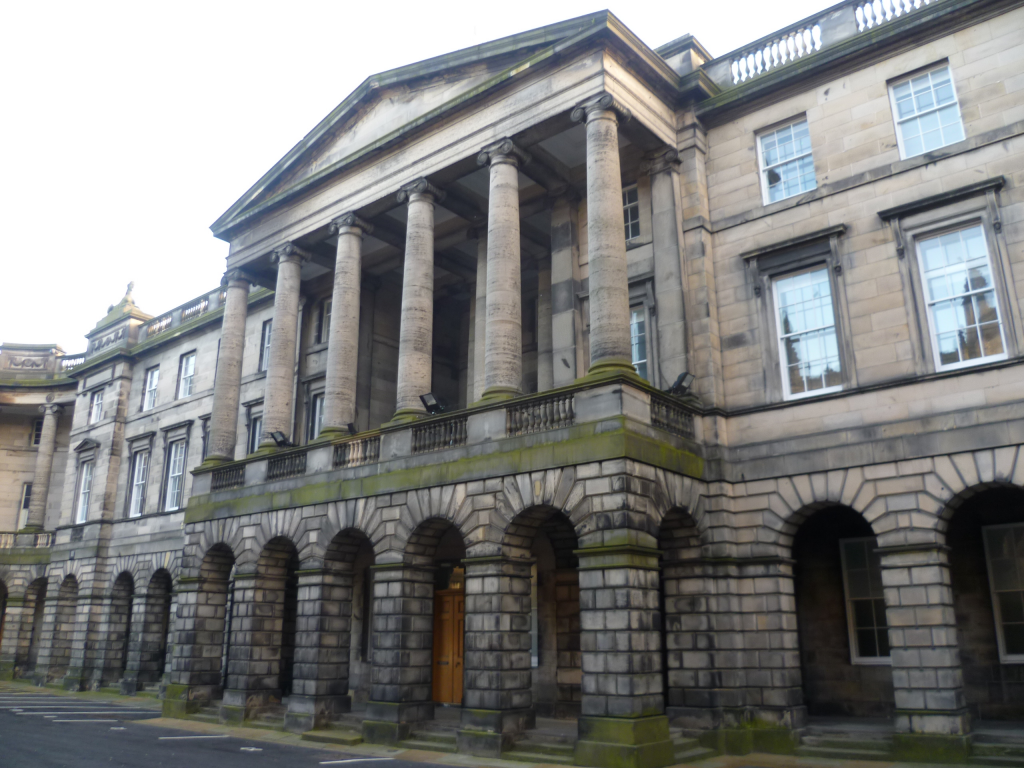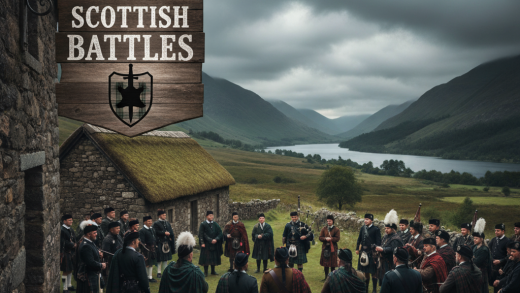The courts of Scotland (Scottish Gaelic: Cùirtean na h-Alba) are responsible for administration of justice in Scotland, under statutory, common law and equitable provisions within Scots law. The courts are presided over by the judiciary of Scotland, who are the various judicial office holders responsible for issuing judgments, ensuring fair trials, and deciding on sentencing. The Court of Session is the supreme civil court of Scotland, subject to appeals to the Supreme Court of the United Kingdom, and the High Court of Justiciary is the supreme criminal court, which is only subject to the authority of the Supreme Court of the United Kingdom on devolution issues and human rights compatibility issues.

The judiciary of Scotland, except the Lord Lyon King of Arms, are united under the leadership and authority of the Lord President and Lord Justice General, who is the president of the Court of Session and High Court of Justiciary. The Court of Session has the authority, under the Courts Reform (Scotland) Act 2014, to regulate civil procedure through passing subordinate legislation knows as Acts of Sederunt, and the High Court of Justiciary has the authority to regulate criminal procedure through passing Acts of Adjournal. Both Acts of Sederunt and Acts of Adjournal have the capacity to amend primary legislation where it deals with civil or criminal procedure respectively.
The majority of criminal and civil justice in Scotland is handled by the local sheriff courts, which are arranged into six sheriffdoms led by a sheriff principal. The sheriff courts have exclusive jurisdiction over all civil cases with a monetary value up to £100,000, and are able to try criminal cases both on complaint for summary offences, and with a jury for indictable offences. Treason, murder, and rape are in the exclusive jurisdiction of the High Court of Justiciary, and whilst the High Court and sheriff courts have concurrent jurisdiction over armed robbery, drug trafficking, and sexual offences involving children virtually all these cases are heard by the High Court.
Administration for the courts is provided by the Scottish Courts and Tribunals Service, a non-ministerial department of the Scottish Government. The Scottish Courts and Tribunal Service is operationally independent of the Scottish Ministers, and is governed by a corporate board chaired by the Lord President, and with a majority of judicial members.
There are various specialist courts and tribunals with specialist jurisdictions, which are subject to the ultimate jurisdiction of either the Court of Session or High Court of Justiciary, including . Children under the age of 16 who face allegations of criminal conduct are dealt with through the Children’s Hearings, which are quasi-judicial in nature. Disputes involving agricultural tenancies and crofting are dealt with by the Scottish Land Court, and disputes about private rights in titles for land ownership and land valuation are dealt with by the Lands Tribunal for Scotland. Heraldry is regulated in Scotland both by the civil and criminal law, with prosecutions taken before the Court of the Lord Lyon.
Discover more from WILLIAMS WRITINGS
Subscribe to get the latest posts sent to your email.




Interesting read.
Thank you friend.
Very concise, Sir. I can’t fully understand the judiciary content in this essay, but I do believe in the concept that all men are equal under the Law…
The Scottish Laws differ from English Laws Davido, its not as complext, thank you, have a nice day.
Your explanation untangles a complex subject with ease. The balance between history, structure, and function makes it not just informative but genuinely enlightening. A rare clarity that transforms law into an engaging narrative.
awe thank you sweet.
Always a pleasure.
Dear William
I admire you even more for this post.
Thanks for liking my post, Gandhi 🌹❤️🌹❤️
awe how kind friend, its true he was an amazing man…
Zawsze wierzyłam, że w Szkocji kryje się coś więcej niż tylko góry i whisky – jest tam ta surowa, poetycka wolność. W dzisiejszych czasach, gdzie System próbuje nas intelektualnie ubezwłasnowolnić (przez takie narzędzia jak aplikacje edukacyjne, które zabijają myśl), sztuka i poezja stają się jedynymi, prawdziwymi azylami i najwyższą formą Opory. To jest nasza Kraina Łagodności. Będę regularnie czytać.
Z serdecznymi pozdrowieniami.
Joanna
awe thank you Joanna, very kind of you to comment, I do agree with you, there are many more factors to scotland than whiskey and mountains, it has beautiful scenery and a lot of history, have a lovely weekend x
So beautiful blog post thanks 🙏
thanks a lot